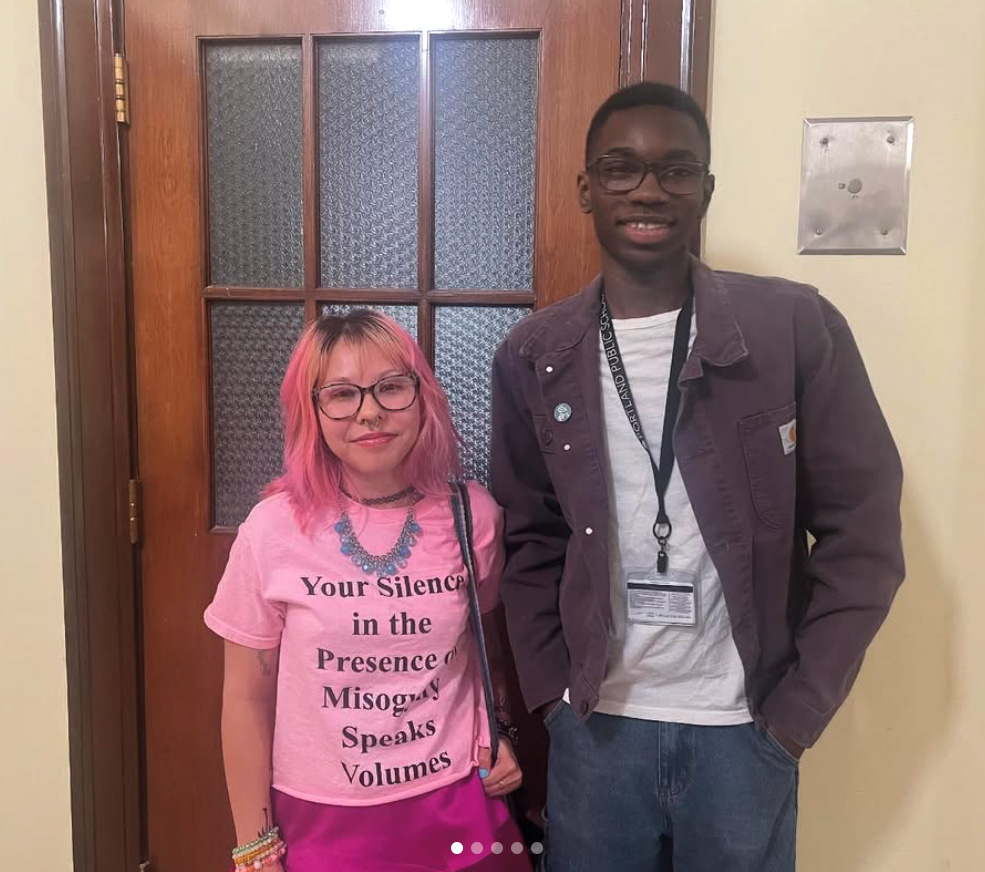Cleveland Senior Helps Pass Senate Bill for Native American Curriculum in Schools
March 19, 2018
Senior Larae Ellenwood played a crucial role in the passing of a Senate Bill about Native American education through voicing her experiences to Oregon legislators. Senate Bill 13 requires Oregon schools to develop and teach a Native American education curriculum.
This bill was officially passed on August 7, 2017, largely due to lobbyists like Ellenwood. She began doing equity work at 11 years old when she testified for a bill that required Oregon sports teams with Native American mascots to change their names.
“I heard a lot of push back from coaches of these teams telling the representatives that they were ‘“honoring’ Oregon tribes and that their mascot or team had had that name for years and changing it would break their traditions,” she said. “Being able to have a voice over this issue made me realize how important I was as a native youth.”
Ellenwood is Seneca, Blackfeet, and Nez Perce. Her mom has connections to the Native community in Portland, and as a group they were able to schedule a lobby day in April, 2017 and talk to legislators and representatives about implementing a Native American curriculum in Oregon schools.
Some of the concerns from legislators were about where they would find the curriculum, or how they would train educators to teach it. Ellenwood said that teachers not knowing how to approach teaching Native American education can often stand in the way of progression. “Instead of teaching it or trying to teach it, they would kind of avoid it overall.” She shared with the legislators her past experiences with Native American education, which she believed help convince them to pass the bill.
Before moving to Portland her sophomore year, Ellenwood lived in Montana, where she received education about Native Americans in her public school curriculum. “I was invited to testify, and during that I talked about my experiences living in Montana. They have ‘Indian Education for All,’ and so it’s taking all kinds of different subjects in school and integrating Native American curriculum into that certain subject,” she said.
She described her biology class, and how they learned about native plants to Montana and how different tribes used them. At Cleveland, however, her experiences were different. “The only class that mentioned Native Americans at all [last year] was my U.S. history class, and the only thing we talked about was alcoholism…we talked about the stereotype that Native Americans are all alcoholics, but not why.”
This year, she’s had more exposure to Native American education. A class that she expressed gratitude for was her government class with Sarah Hardy, and discussed how they’re learning about the Seneca tribe’s government and how it influenced our government today.
“Being able to hear my tribe’s history in a class that I’m in at Cleveland kind of shocked me, and it felt good to know that people around me were learning about my cultural background and values… I wanted to thank [Hardy].”
With the passing of Senate Bill 13, Native American education will now be required to be implemented for K-12 in public education. Ellenwood expressed that this is a step forward for Native American students. “It’s nice to have that cultural presence in school, and to be able to know that kids in school know about your culture and history.”
Ellenwood said she plans to continue equity work in the future. “There’s no reason not to,” she said. “I didn’t ask to be a representative for my culture, but I have welcomed the responsibility. I’ve been a part of several panels advocating against Native American cultural misappropriation and voicing my experience of such misappropriation.”










